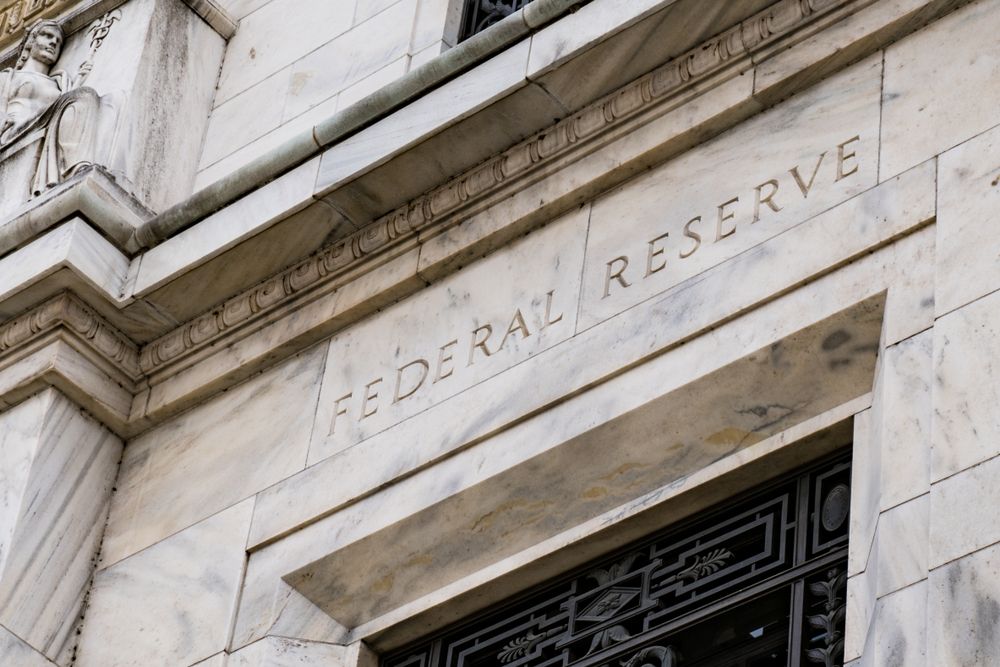TradingTips.com |
- When Stock Investors Get it Wrong
- Uber Gets 13 Bullish Ratings as Analysts Come Out Swinging
- Insider Activity: Capri Holdings (CPRI)
- Unusual Options Activity: Las Vegas Sands (LVS)
- Fed Chief Calms Markets
| When Stock Investors Get it Wrong Posted: 05 Jun 2019 03:42 AM PDT When you buy shares of a company, you're getting an ownership slice. If the company does well, your shares should rise. The company may even pay a dividend, providing you with cash you didn't have to labor over for a living. Sounds great! But, a company is more than just the sum of its shares. Companies have a capital structure, which includes a mix of stocks (called equity), and other types of financing, typically debt. Nearly all companies have debt. Some debt, relative to the stock value, is fine. It's a lot like the mortgage on your home—borrowed money that lets the company do things today it otherwise couldn't afford to do. But sometimes, companies get too much debt for their cash flows. Or they structure their debt differently than a mortgage. For instance, some debt may be convertible to stock at the right price. If it does convert, the company has less debt, but existing shareholders end up getting diluted. That's part of the problem going on right now with Tesla Motors (TSLA). Shareholders may have seen their shares beat the pants off the market the past few years, but the company also loaded up on debt to finance its famous electric cars. Some of that debt came due, and, because of where the share price was at, ended up getting converted. The timing is pretty bad. Besides the heavy debt load and now dropping share price, the company has some big production problems and a larger-than-life CEO distracted with a myriad of other activities. When shareholders ignore a company's debt—and when it comes due—they set themselves up for losses. It's no wonder that Tesla shares are down by nearly half in less than a year—and why some analysts are already calling for a further 90-95 percent drop from here. |
| Uber Gets 13 Bullish Ratings as Analysts Come Out Swinging Posted: 05 Jun 2019 03:00 AM PDT
Ride-share giant Uber gets more than a dozen “BUY” ratings from analysts. 25 days after its tumultuous IPO, ride-sharing company Uber (UBER) got its first thirteen analyst ratings. All were bullish. Despite a strong day in the markets and these bullish ratings, shares of the company lagged the markets, but did rise higher on the day. Shares have been struggling since the company went public, suggesting that the IPO was overpriced… a factor that may be keeping investors away even now. Uber may have also shot itself in the foot, when it disclosed in its IPO filing documents that the company did not make money, and may never make money. While the company beat earnings and revenue expectations when it reported its first earnings as a publicly-traded company, the company did burn through over $1 billion in cash during the quarter. While the largest player in the ride-share space, Uber was the second company to go public after Lyft (LYFT) started trading earlier in the year. These issues have frustrated investors, although those who invested while the company was still private have been able to cash out huge profits. Action to take: Avoid shares of the company for now, but by all means continue to enjoy the product. Shares still remain weak, and as a low-margin business, there are better investment opportunities out there at the moment. |
| Insider Activity: Capri Holdings (CPRI) Posted: 05 Jun 2019 03:00 AM PDT
Apparel brand company CEO makes a $20 million buy into shares. Chairman and CEO of Capri Holdings (CPRI) John Idol just spent over $20 million on shares. He picked up over 615,000 shares of the company, increasing his stake by 30 percent. The United Kingdom-based company manufactures apparel and accessories for men and women around the world, including such well-known brands as Versace, Jimmy Choo, and Michael Kors. Shares have been weak year-to-date, and the $20 million buy-in is a major vote of confidence that shares can start turning around from here. In the past year, shares have traded as high as $75, but are now close to $35. Even with these powerful brands, shares trade under 7 times earnings. With a mix of high-end luxury and middle class brands like Kors, the company trades at a discount to both ends of the apparel market. Shares are so cheap that they could also be taken private at these levels and still leave investors with plenty of upside. Action to take: The January 2020 $55 calls trade halfway between the current share price and the 52-week high for shares. This is a speculative trade, by all means. But on a big bounce for shares, these options which cost less than $50 per contract right now, could triple or quadruple for a few bucks if shares move quickly enough. |
| Unusual Options Activity: Las Vegas Sands (LVS) Posted: 05 Jun 2019 03:00 AM PDT
A big, bearish trade implies more downside for the casino from here. At least one trader is betting on a big decline in casino firm Las Vegas Sands (LVS). On Tuesday, a large number of contracts traded on a December $40 put option. With shares currently trading around $55, which implies a 25 percent decline in shares between now and the end of the year for the put option to pay off like a winning slot machine. The contract had over 1,360 trades, against an existing volume of just over 200 contracts. Shares of the casino have traded as high as $81 in the past year. A slowdown in gaming revenues this year have led to weakness in shares. Gaming revenue can be tied to international tourism, which has taken a hit with trade war fears. Add in the uncertainty on the domestic economy, and the growth has been slow. However, the casino company has seen shares rise and fall rather quickly, so this option trade could have been made with a quick score in mind. Action to take: Consider buying shares of Las Vegas Sands under $50.00. Even with the slowdown, shares would pay a 6 percent dividend yield at that price, and would trade for less than 15 times earnings, a reasonable multiple here. |
| Posted: 05 Jun 2019 03:00 AM PDT
Federal Reserve officials gave markets a huge boost Tuesday with bullish comments. Markets surged higher over 2 percent on Tuesday, fueled by comments by Federal Reserve Chairman Jerome Powell. Speaking at a conference at the Federal Reserve Bank of Chicago, he stated that the Fed is prepared to “act as appropriate to sustain the expansion.” The comments also revolved around trade war fears that could put a lid on trade and economic growth, using the old standby phrase “We are closely monitoring the implications of these developments for the U.S. economic outlook.” Markets, however, did not wait around, rallying strongly. Traders are increasing their bets for a cut in interest rates within the next year, potentially by the end of 2019. And with all potential monetary tools on the table, rate cuts may not be the end should economic conditions take a turn for the worse. Such Fed comments during a market selloff are not uncommon. The tech-heavy Nasdaq index reached correction territory on Monday, with a 10 percent decline from its recent, all-time high, peak, exactly the kind of pullback that tends to get policymakers to say something soothing about markets. Given the rising uncertainty in the markets that trade may be curtailed or subject to higher tariff rates, this type of Fed speech, also known as jawboning, may move the markets higher without any real change or action behind it. |
| You are subscribed to email updates from TradingTips.com. To stop receiving these emails, you may unsubscribe now. | Email delivery powered by Google |
| Google, 1600 Amphitheatre Parkway, Mountain View, CA 94043, United States | |





No comments:
Post a Comment